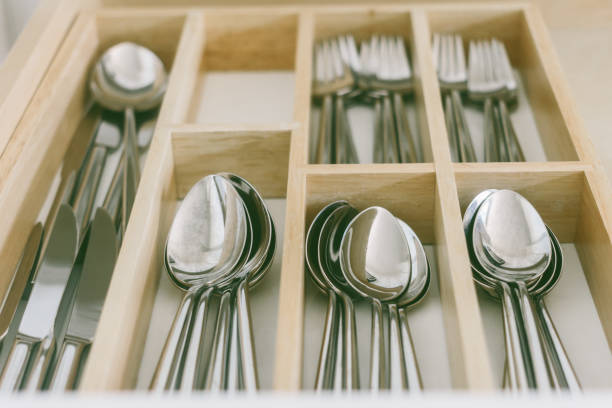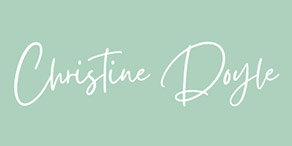
Why we Autists need to keep an eye on our spoons!
Before realising I was Autistic I had never heard of the concept of counting spoons and now it is something that I keep an eye on most day and it has been of great benefit in managing my overwhelm and propensity to burnout.
What is Spoons theory?
To be Autistic is to become tired, very tired, frequently; overwhelmed and exhausted by what others seems to be able to do with ease. We can often look around and wonder at how everyone else seems to be sailing through when it rarely feels like that for us. Sure, everyone, Autistic and non-Autistic alike, only has a certain capacity for work, family, socialising, housework, and interests as is, but Autistic people often have less energy for many of these things than non-Autistic people. It can often be hard to understand what has us so depleted as it can happen on any given day, no matter how typical the day seemed.
Christine Miserandino developed “spoon theory” in relation to those living with chronic illness and it has been adopted by the Autistic community to understand our frequent experience of overwhelm and burnout.
According to Spoon Theory, in relation to Autistic people, we begin our day with a number of “spoons”. This is in contrast to others who may have a seemingly unlimited number of spoons. Every time you do something, you’ll use one of your spoons. When you use it, it’s gone; there aren’t any more spoons in the drawer that you can use to replace it.
Of course, some things might use more spoons than others, and you can work out what uses more of your spoons. But the critical thing to remember is that you only have so many spoons to start off with. It’s also important to remember that, when you’re Autistic, even things you enjoy will use a spoon, or more than one. This can be due to sensory stimulation, activation of the stress hormones, social exhaustion or other reasons.
Spoons, or maybe stones? Or golden coins even?!
Many of my clients and I prefer to think of the “spoons” as nice, smooth stones instead. I have a physical jar full of shells I’ve collected from the beach, so I can see them in real life as well as imagine them. Side note here: collecting pebbles, stones, shells and rocks (mementoes) from a nice day or a time we enjoy and we wish to remember is something many Autistic people like to do. For this reason, also, stone counting can be more appealing for Autistic people. Many of us are very visual processors and I find it helpful to take a small stone with me as a self-care reminder not to push myself beyond my allotted amount of stones. If going to see a friend in town for lunch for an hour is going to use two stones, I make sure not to stay any longer or I’m not going to have enough stones to cover the rest of my day. This can be a great help to bring more awareness to the tendency to people please and can help to see the sacrifice involved to our own wellbeing in prioritising the wants of someone else over our capacity.
A client of mine reflected recently that she likes the spoon analogy as she is reminded of it every morning as she unloads the dishwasher and puts the spoons away. Isn’t it always the (tea)spoons that seem to be used up / go missing first which further underlines the importance of watching our spoons!
Another client said they heard spoons referred to as golden coins, and I loved the sacredness and scarcity implied in this metaphor.
Whether you use spoons, stones, golden coins or something else entirely, the concept is the same; you have a limited amount of energy.
Beg, borrow and steal
It can be really useful to have an overview of where you are using your spoons over the week too. If I have a very busy weekend, I know come Monday I won’t have my full amount of spoons available to me – sleep helps but often isn’t enough and a low-energy, demand-free day or two following a busy period is necessary to restore my spoon count.
If I have a day away planned, I make sure to have nothing on the following day. As an Autistic person, transitions are very draining for me so if I have a day with lots of changes; school runs, errands, various tasks – I know that by the time the evening comes I need a lot more rest. If I am in a highly stimulating environment like a floodlit match with lots of people, my spoons might be affected for a couple of days afterwards as that is a mixture of particularly draining experiences for me.
In a nutshell, as you begin to see your energy in terms of spoons, and in doing so become more aware of where your spoons are used the most, you will intuitively adjust and adapt to better accommodate your limited energy supply for the things that mean the most to you.
Where are all my spoons gone?!
As a highly masked Autistic adult I am on a steep learning curve of better understanding myself, my energy, the cost of my mask, where I push past myself to blend and appear in control. In the past year alone I have found myself with no spoons left. I had ignored the signs; my building fatigue, my increasing overthinking, my perpetual state of overwhelm and found myself, quite quickly in a full meltdown.
It is very tempting to pretend I have the same energy as everyone else, but the reality is I simply don’t. And when I forget this, forget myself, my body shuts down.
A depletion of spoons can result in a meltdown, a shutdown, or a period of burnout that can last from days to months.
In short, we need to mind our spoons.
Get used to your spoons
Essentially getting used to your spoons, and knowing where you use them, will help (along with allowing space and time to safely unmask) to prevent burnout.
Getting used to your spoons will also help you see the activities where your energy is restored. For me this is definitely a walk and a chat with my closest friends, a deep pressure hug with my husband or kids, curling up with my favourite book, and sometimes this is space for complete silence. If you feel you are coming close to having no spoons left, pare back to bare minimum, whatever can wait .. now is the time to let it wait to respect and support the energy drain you are in and give yourself a chance to recover, to come back to you.
I hope that you enjoyed this and found it useful. If you are curious to learn more about the Autistic experience, please contact me at christine@christinedoyle.ie where I will be more than happy to support you with your questions.
